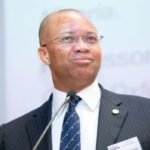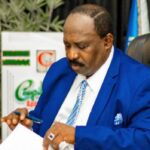Nigeria’s foreign reserves have reached a six-year low, dropping to $32.29 billion, the lowest level since September 2017.
The decline, totalling $2.6 billion since March 18, highlights ongoing challenges facing the country’s currency amidst economic headwinds.
The Central Bank of Nigeria (CBN) has implemented various measures to stabilize the naira, including raising interest rates and managing foreign exchange trades.
Despite the efforts, the depletion of foreign reserves persists, reflecting sustained economic pressures.
In response to the decline, the CBN has intensified interventions in the foreign exchange market, with increased sales at official and parallel markets.
Additionally, mandated spreads for Bureau De Change (BDC) operators have set a floor for the naira in the black market, aiming to manage exchange rate volatility.
However, concerns about the sustainability of the CBN’s managed float system have been raised.
Akpan Ekpo, a professor of economics, emphasized the need for economic diversification away from oil dependence to strengthen foreign exchange earnings.
Furthermore, challenges in Nigeria’s oil sector have contributed to the decline in foreign reserves, with OPEC reporting a decrease in oil production for the second time this year.
The combination of reduced oil output and economic pressures exacerbates strains on foreign reserves.
The International Monetary Fund (IMF) projects a further reduction in Nigeria’s foreign reserves, forecasting a decline to $24 billion by 2024.
Meanwhile, the CBN has reiterated its dedication to fostering digital innovation as an economic growth and development catalyst.
The affirmation came from CBN Governor Olayemi Cardoso during an engagement with participants from the Senior Executive Course (SEC 46) of the National Institute for Strategic Studies (NIPSS) in Abuja.
Represented by Dr Balla Bello, Deputy Governor of Corporate Services, the CBN Governor highlighted the strategic importance of NIPSS in grooming top-tier technocrats essential for shaping innovative policies and executing strategic plans crucial for Nigeria’s advancement.










